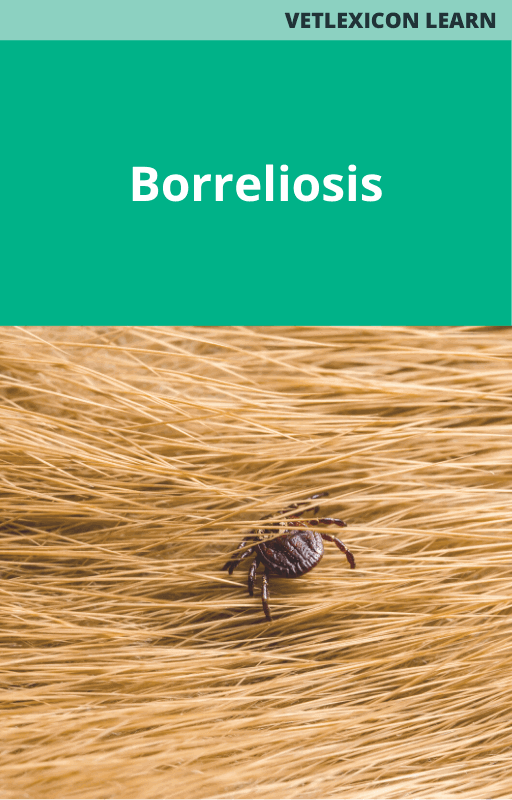
Develop your knowledge and understanding of borreliosis in horses.
This module looks at pathogenesis, diagnosis, treatment, prevention and outcomes of borreliosis in horses, including:
Cause – tick-borne infection with Borrelia burgdorferi commonly known as Lyme disease. Horses are end-stage incidental hosts.
Signs – highly variable and not pathognomonic: pyrexia, lymphadenopathy (local to attachment or widespread), swollen joints, shifting lameness, hyperesthesia, behavioral changes.
Diagnosis – difficult as many asymptomatic horses are seropositive. Diagnosis based on combination of geographical area, clinical signs, serological testing and response to treatment.
Treatment – oxytetracycline or doxycycline + NSAIDs as first line. If non-responsive minocycline, ceftioflur or even metronidazole can be used.
Prognosis – guarded for neuroborreliosis, variable for non-specific clinical signs.
Support and Resources
This online module includes an e-Book with content from Vetstream's Vetlexicon Equis followed by a quiz leading to a personalized certificate. Written by some of the world's leading veterinarians, ensuring accuracy and depth of content.
This course was written and peer reviewed by:
CPD Hours
This module is worth approximately 30 minutes of CPD.